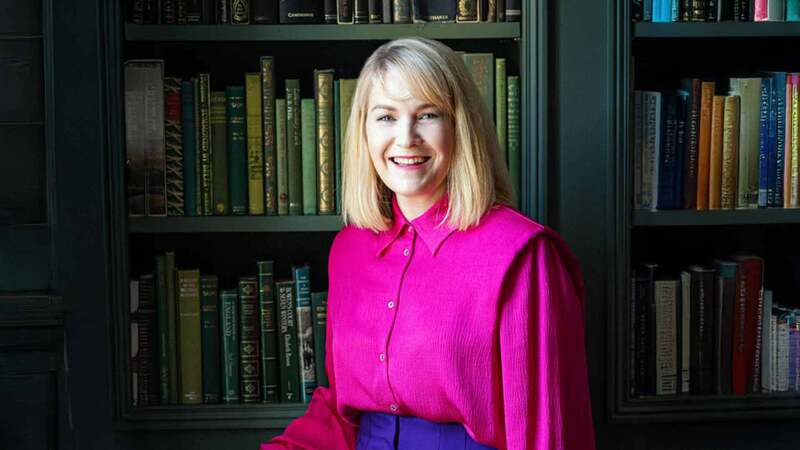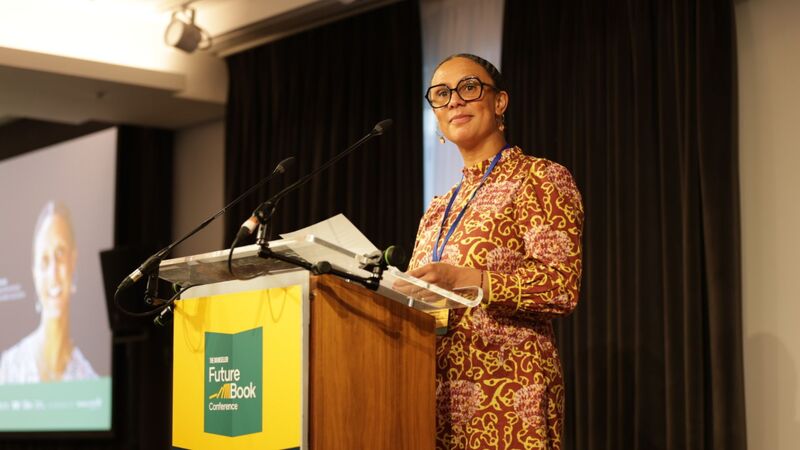You are viewing your 1 free article this month. Login to read more articles.
Trade backs bookshops as ‘essential retail’, but shop-floor staffers voice concern
The trade is split down the middle on whether bookshops should be classed as essential retailers, and remains wary over a second lockdown’s effects on sales and profitability this year, a survey by this magazine shows.
In the run-up to the vital Christmas period, bookshops in England have been barred from opening under the government’s new lockdown restrictions. Stores in Wales were also shuttered during the two-week “firebreak”, which ended on Monday (9th November). That has led to calls from the Booksellers Association (BA), Waterstones boss James Daunt and a host of authors, including Ali Smith and Salman Rushdie, for bookshops to be reclassified as essential retail, thus allowing them to open again.
A survey conducted this week by The Bookseller into attitudes on a second lockdown showed its 105 respondents were split 50-50 on making bookshops essential retailers. Of those supporting the reclassification, many said the trade should be doing more to back it, alongside calls for rate reductions and financial support.
However, from the respondents who actually work in bookselling, just 38% were in favour of the change. One said they were “conflicted” about the second lockdown, writing: “I believe that a second lockdown is needed and I support it. That said, I’m worried for my job and the long-term future if we can’t reopen. That my employer is trying to find ways around the lockdown rules is understandable, but it riles against what I think is the correct thing to do.”
Others said they were frustrated and, like the BA and Daunt earlier this week, hit out at exceptions that permitted W H Smith branches and supermarkets that sell books to remain open. One remarked: “We were expecting to be able to make back some of the sales that we lost in the first lockdown [during] this month and next month. Now they’ve forced us to close right at the time when we would be making the most money.”
A happy ending?
For obvious reasons, booksellers were more pessimistic than the wider trade about the financial impact, with 81% predicting profitability and sales would decrease. However, booksellers said the lockdown this time around was much less “anxiety inducing”, with many singling out ramped-up online operations, click-and-collect services, plus the launch of Bookshop.org as welcome additions from last time around.
Asked about their biggest challenges during the crisis, aside from the closures, booksellers highlighted the difficulty of recommending books while social distancing and trying to secure the right stock was in when the market has been inundated with delayed titles from earlier in the year.
 Some singled out the swell in support for local business as a point of light in the gloom. Another warned the job was a challenge, but talented booksellers would shine through. They said: “The ‘Field of Dreams’ model of bookselling has completely failed for the next few weeks in England. No longer can you ‘build it and they will come’. You can trade on a reputation to a degree, but you can’t let a well-curated physical bookshop do the heavy lifting anymore. [ It] feels like coal-face bookselling where your raw passion, knowledge and ability to sell books have been thrown into sharp relief. Some will struggle, but truly good booksellers will find a way to get books into customers’ hands.”
Some singled out the swell in support for local business as a point of light in the gloom. Another warned the job was a challenge, but talented booksellers would shine through. They said: “The ‘Field of Dreams’ model of bookselling has completely failed for the next few weeks in England. No longer can you ‘build it and they will come’. You can trade on a reputation to a degree, but you can’t let a well-curated physical bookshop do the heavy lifting anymore. [ It] feels like coal-face bookselling where your raw passion, knowledge and ability to sell books have been thrown into sharp relief. Some will struggle, but truly good booksellers will find a way to get books into customers’ hands.”
Across the trade, the survey showed 62% of people thought the profitability of their business would be unaffected by the second lockdown, with 33% anticipating a decrease. Several respondents said year-on-year results were likely to be down following a tough 2020, but stressed the picture was rosier than they had anticipated back in March and April.
However, one warned that further challenges were on the way, saying: “Logistics is a grave concern. Not to mention the Brexit uncertainty, which might just launch us into chaos. That sounds dramatic, but that’s what it feels like. I am more bothered by the uncertainty of lockdowns and unpredictable changing of rules. I am bothered by how late these announcements and decisions are shared with the industry.”
Only 30% expected their personal income to be hit while, when it came to their business’ sales, 51% expected a decrease, 11% foresaw an increase, and the rest expected there to be no change. One publishing worker commented: “The commercial side of our business should be fine, with readers finding what they need in supermarkets or online. The literary and gift end of our lists will suffer without independents, high street and tourists.”
Although a large number of respondents were jaded with the working from home experience and worried about its mental health effects, many respondents reported feeling more upbeat this time around than back in the spring, with less furloughing, the bonus for working parents of schools staying open, and a better understanding of the challenges.
A respondent observed: “Lessons have been learnt across the trade from the first lockdown, but it is vital that we all get the chance to sell books in the few days left before Christmas. Confidence that the government has used the lockdown wisely will be an essential factor in getting footfall back into our shops.”
However, there were worrying exceptions. One e-commerce worker warned all their resources had been used up, staff had been furloughed and they might have to get another job to pay the mortgage. They said: “It’’s a financial disaster, compounded by media reports suggesting this lockdown isn’t necessary. While MPs continue to be paid their salaries, a significant number of indie publishing companies are falling through the cracks for government support.”
Most people said their company had handled the entire crisis well, but there were also complaints, with reports of pay rises being put on ice and staff being cut back even where sales were up. One disgruntled employee questioned their firm taking government money while recording excellent profits. “I now see the company as a corporate benefits cheat. It’s had a fantastic year, but is standing by the decision to cancel all pay rises. Staff morale is low.”
Asked about challenges, many respondents cited motivation as a primary concern, alongside the inability to judge the welfare of colleagues, lack of face-to-face contact, and problems associated with working from home.
One summed it up: “We’ve been drawing on the bank of relationship capital built up over many years of talking, working, laughing and loving books together in an office. There is no way to re-create the random encounter that sparks a creative chain of thought, or to nip down spontaneously to someone’s desk for a chat. It is all more cumbersome. We have worked out that we can work like this, but in the long-term, the lack of a learning environment for younger members of staff listening to conversations around them, the loss of spontaneous discussions about books, and the reduction in the number of people you come across every day feels as though it can only result in a less rich and rewarding environment.”
That said, there were also positive points to the experience, including the lack of time commuting, the realisation that remote working is achievable, an improved work/life balance, and a rise in e-book sales.
The bigger picture
On the long-term effects of the pandemic on the industry, there were two common responses: that flexible working was here to stay, but also that job cuts could be on the way. One respondent warned: “I predict that most/all publishers will start undergoing redundancies soon after Christmas. My own job is as safe as any can be at the moment, but I expect that my company will be looking at cost-saving strategies, and the resulting redundancies will negatively impact on everyone else’s workload.”
Another who predicted redundancies and cost-cutting summed up the situation: “I don’t think the pandemic will necessary have instigated these, but it has accelerated the need for businesses to transition, and has put a much greater spotlight on finances. On the flipside, I do hope that it will create greater flexibility with employers more open to recruiting staff who live further away and perhaps only visit the office once or twice a week.”















